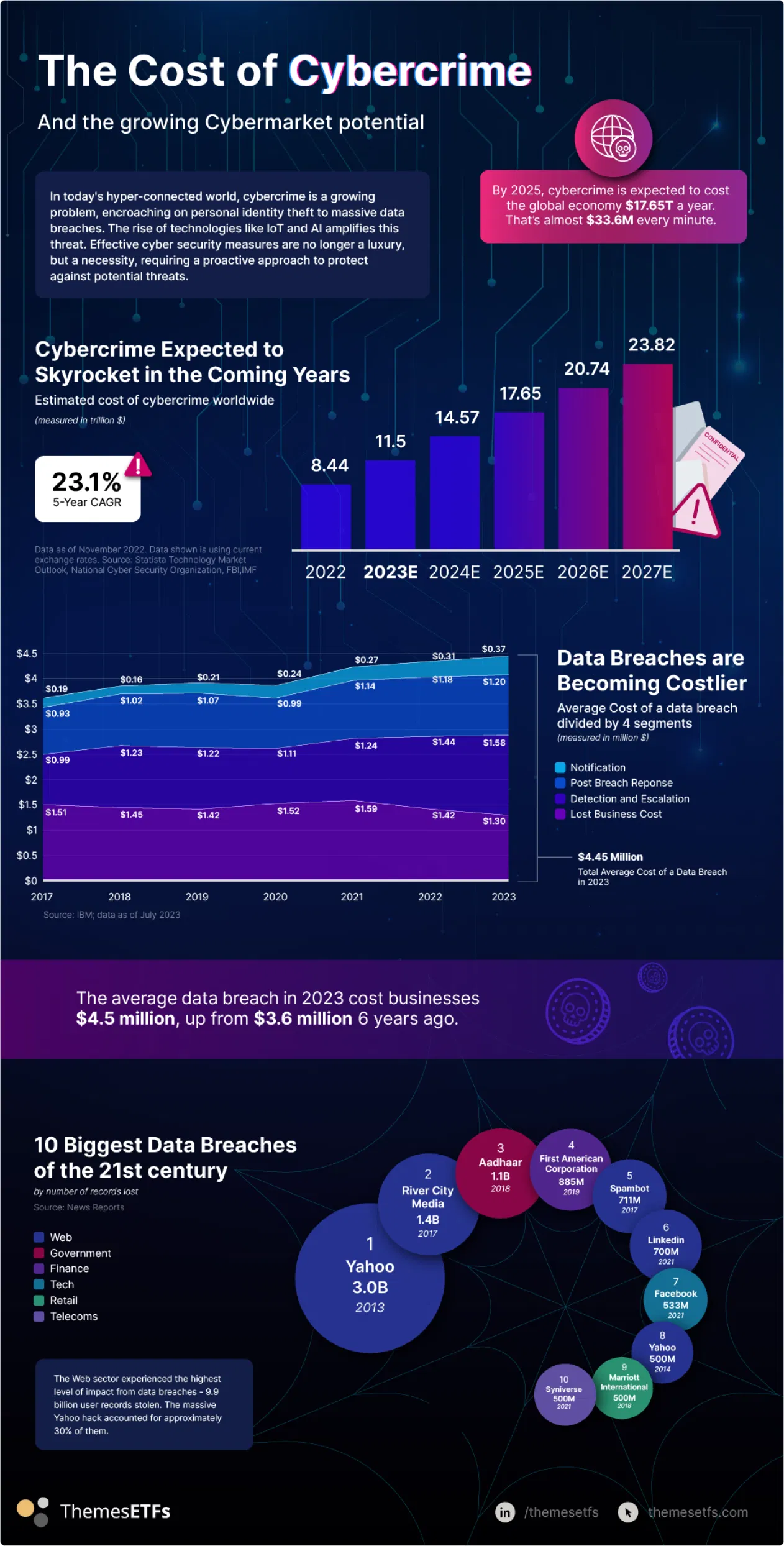The Case for Cybersecurity
As its name implies, cybersecurity endeavors to “secure” computers, networks, programs, and data in order to prevent unauthorized access.
Data stored by companies and individuals alike is often sensitive in nature, including everything from passwords to payment information. Should sensitive information be compromised in a data breach, the consequences of such cybercrime can prove costly.
Total financial losses from cybercrime have increased 281% over the past five years to $10.3 billion in 2022 alone according to a report assembled by the Federal Bureau of Investigation (FBI).1
Defining Data Breaches
A data breach is an incident in which sensitive or confidential information is copied, transmitted or stolen by an unauthorized entity. Breaches can occur as a result of malware attacks, fraud, insider leaks, or unintended disclosure.
The targets of such attacks are often personally identifiable information (PII), intellectual property, corporate data, or government agency data.
Every year, data breaches cost businesses billions of dollars; they also erode both consumer trust and retention. With an increasing reliance on technology and data stored online, data breaches have become an omnipresent threat to individuals, companies, and government agencies.
Investments in Innovation
As technology and the cybercriminals that wield it become ever more sophisticated, companies have had to significantly increase their investments in cybersecurity infrastructure to thwart them.
91% of business leaders believe a “catastrophic cyber event” is likely and are actively taking measures to increase their cybersecurity capabilities.2
As a result, companies continue to drive demand for ever greater digital security, with $101.5 billion in projected spending by 2025 according to economic estimates and consultancy forecasts.3
1Source: FBI Internet Crime Report as of 31 December 2023
2Source: Gartner as of 31 December 2023
3Source: McKinsey & Company as of 31 December 2023
Our Cybersecurity ETF (SPAM) seeks to track the Solactive Cybersecurity Index (SOCYBERN), which identifies the largest 35 companies by market capitalization in digital security software.
SPAM seeks to provide investment results that correspond generally to the price and yield performance, before fees and expenses, of the SOCYBERN Index.



